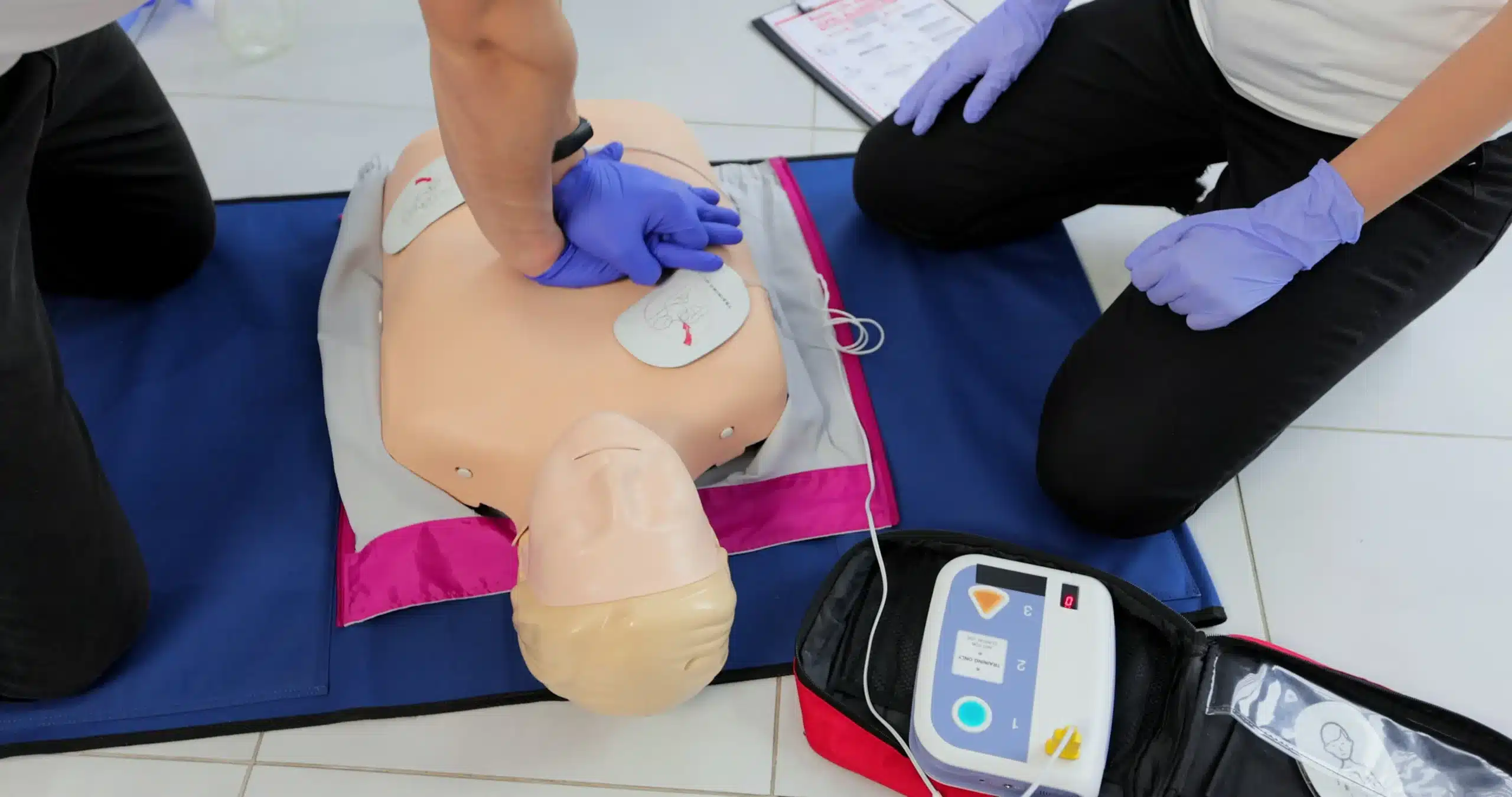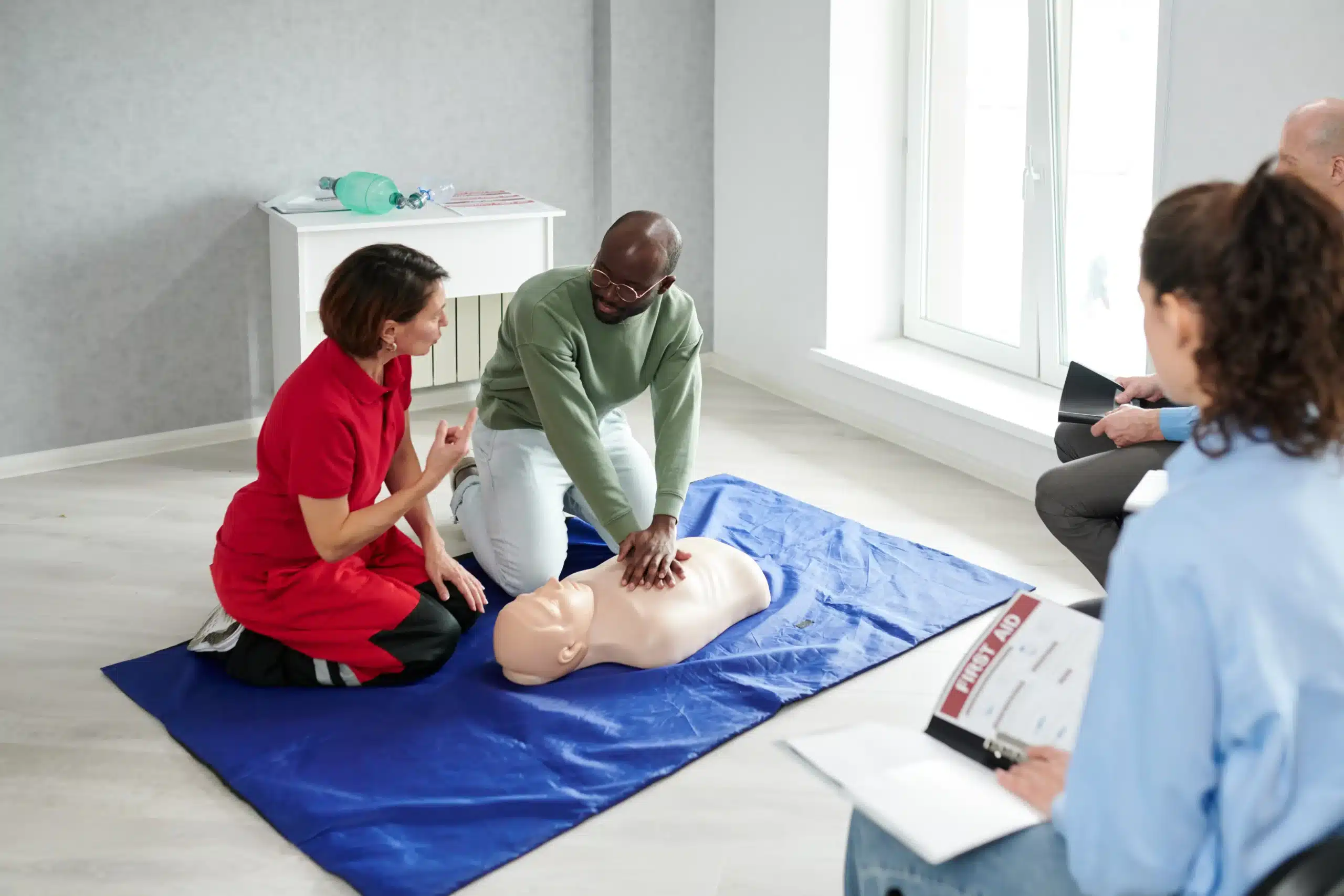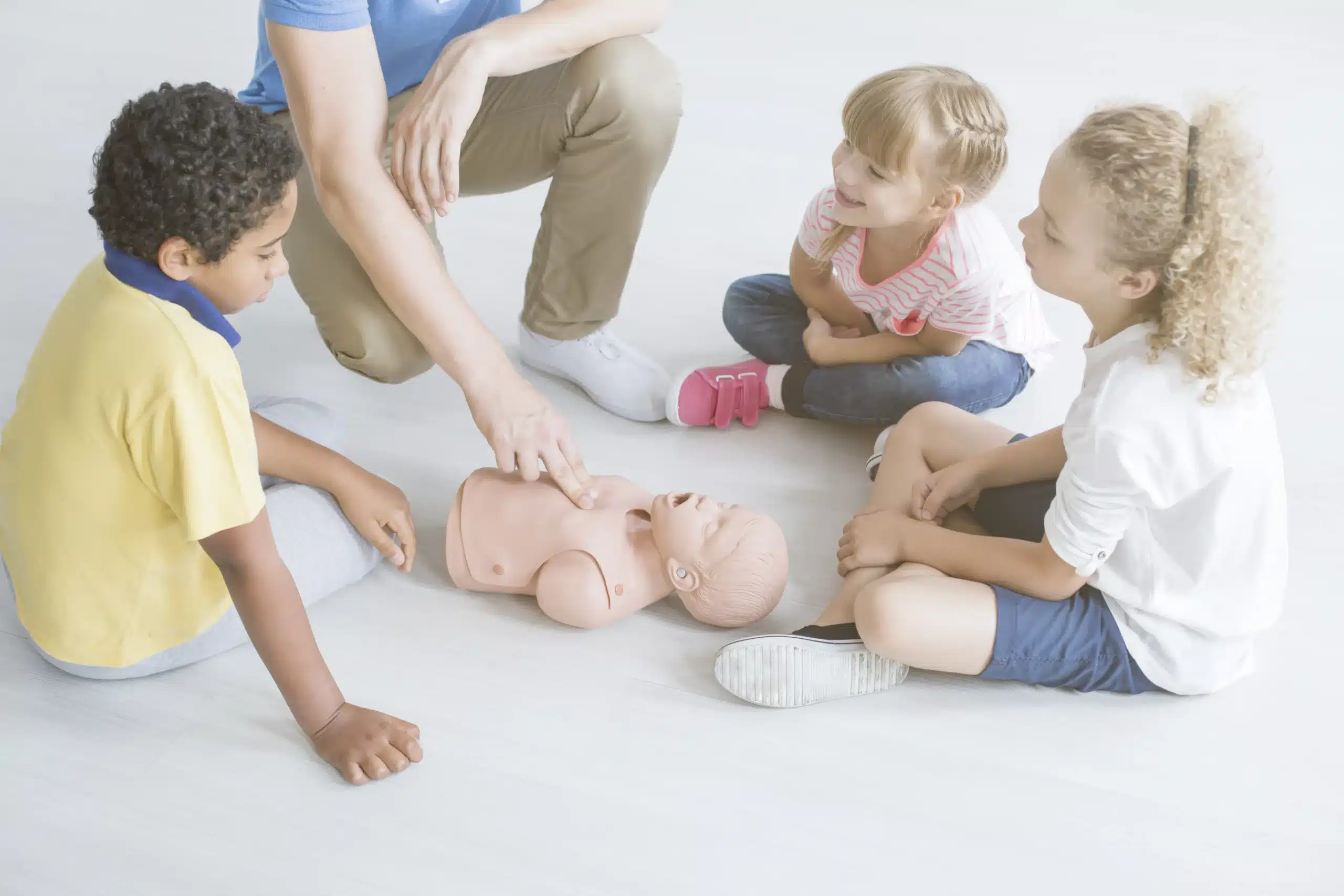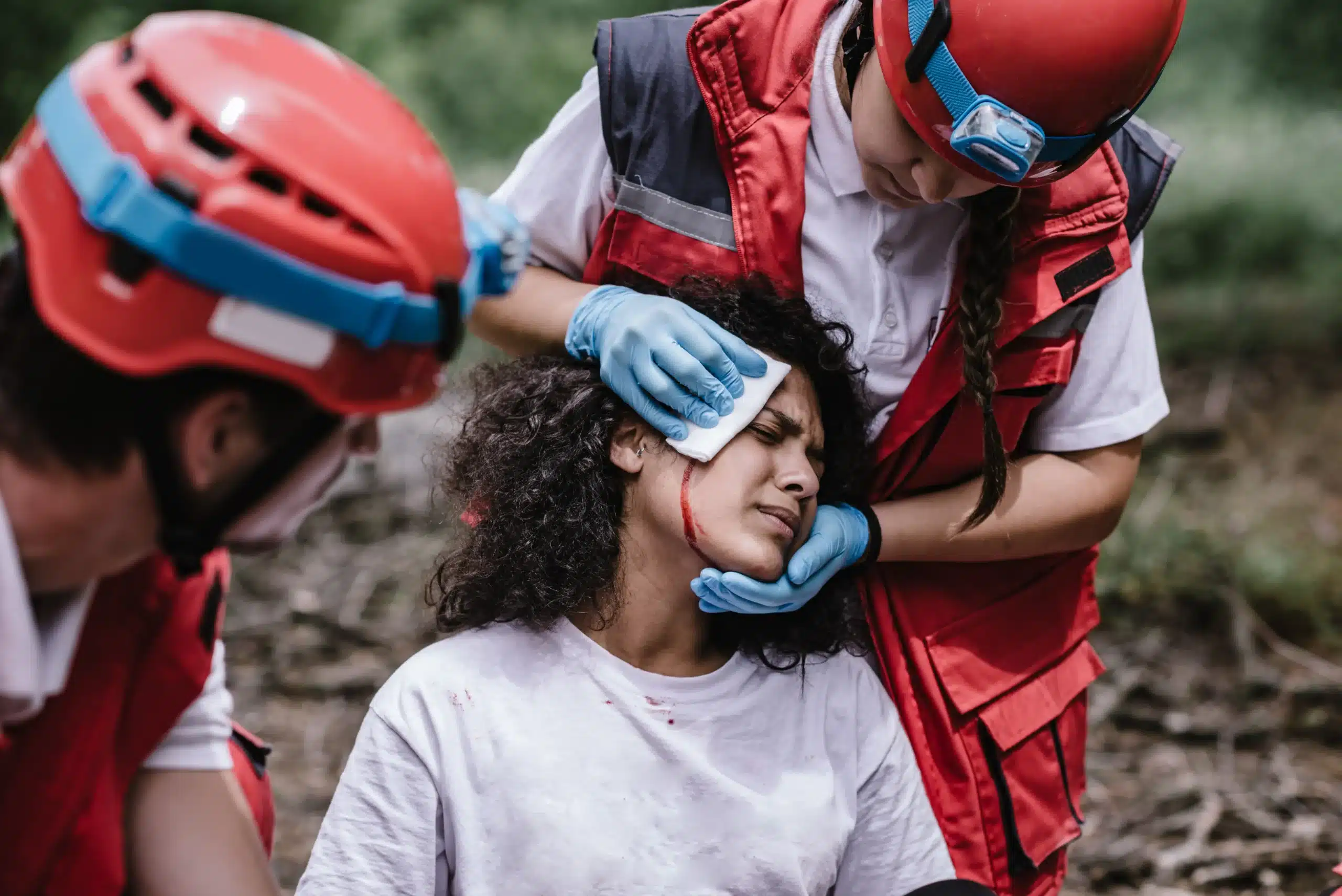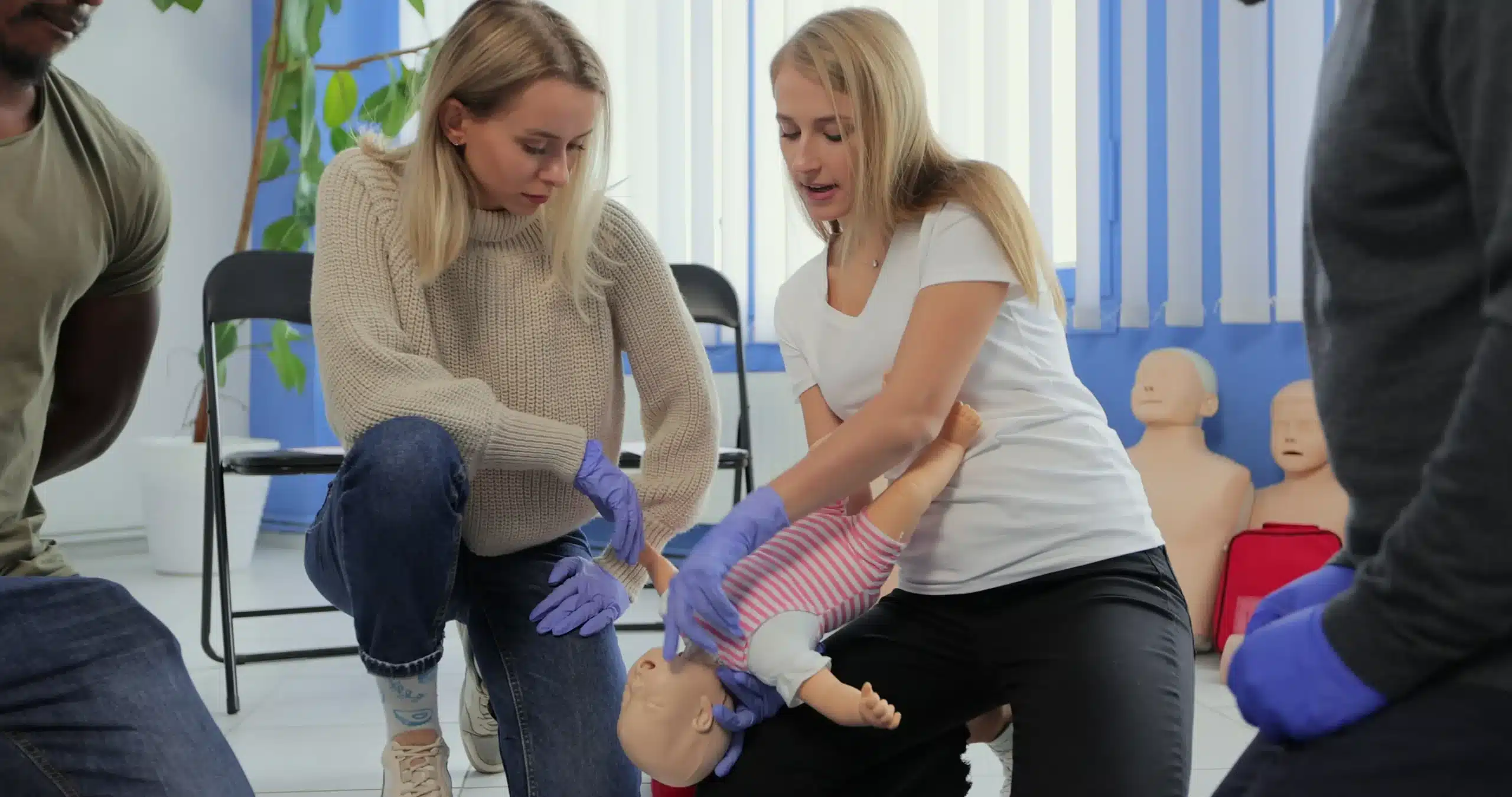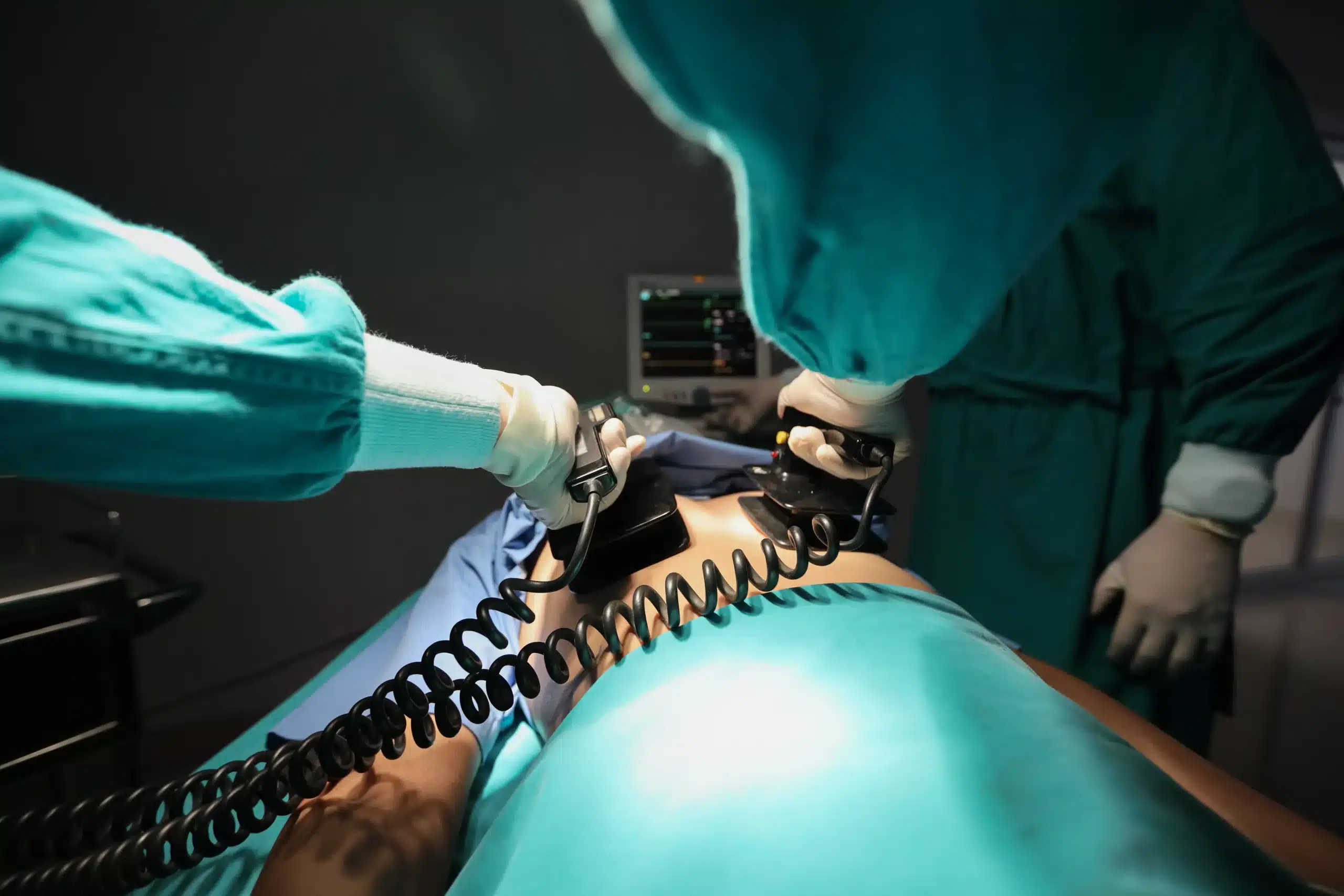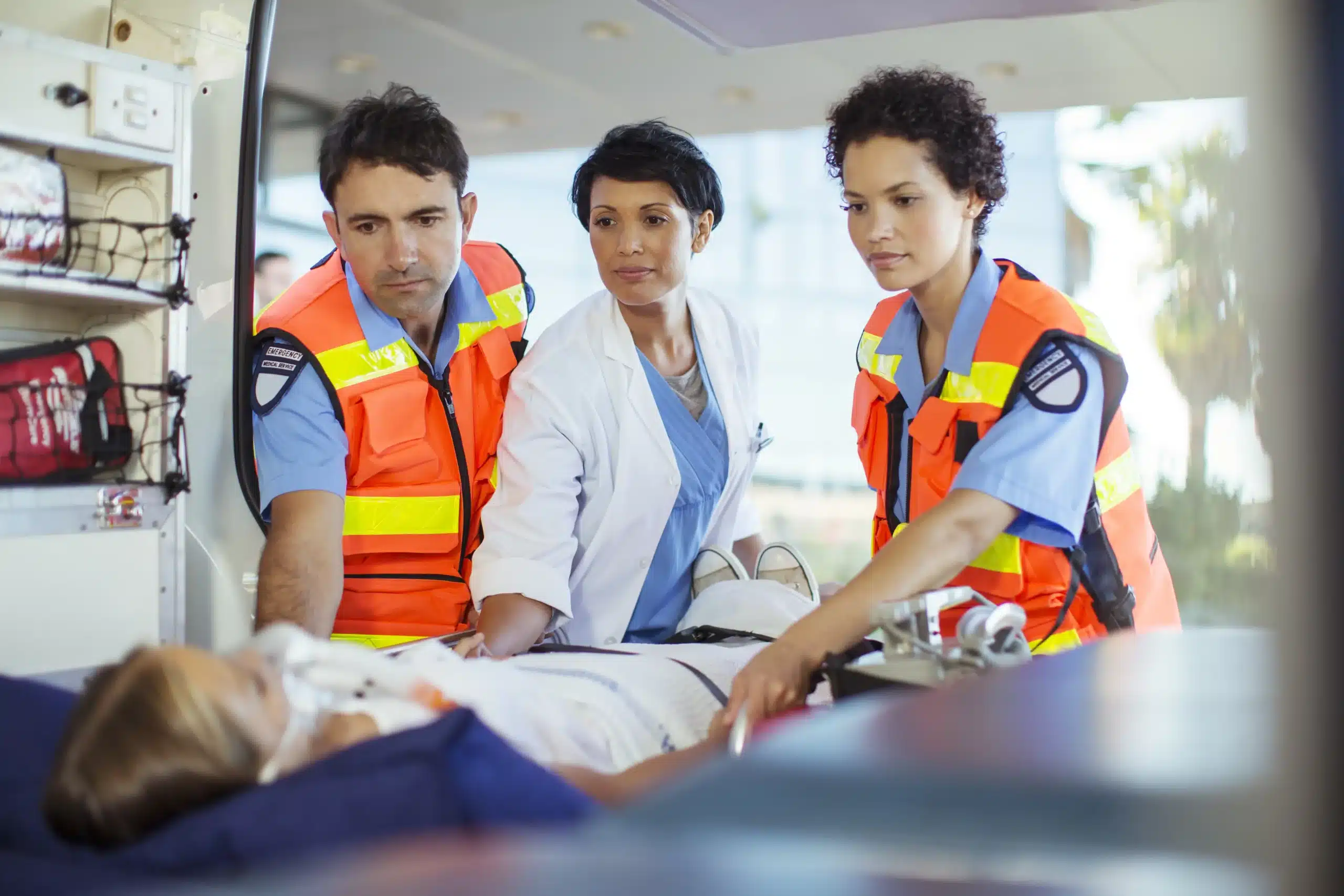Emergencies can happen anytime, anywhere. Being equipped to handle these situations is empowering, especially in a close-knit community like Mountain House. CPR training is a vital skill that can make a real difference in a medical crisis. This article serves as your comprehensive guide to CPR courses in Mountain House. We’ll explore the various training options available, whether you’re looking for basic life support skills or professional certification. We’ll also discuss the importance of CPR, what happens during training, how to find qualified instructors, and how to maintain your certification so you’re always prepared.
Key Takeaways
- CPR training is essential for Mountain House residents: Equipping yourself with CPR skills provides a crucial safety net for your community, enabling you to respond effectively in emergencies.
- Accessible CPR courses cater to diverse needs: Explore a range of options, from free community programs to specialized paid training, to find the perfect fit for your schedule and learning style.
- Stay prepared by maintaining your CPR certification: Ensure your skills remain sharp by renewing your certification regularly and considering continuing education opportunities to expand your knowledge.
What is CPR and Why is it Important in Mountain House?
Cardiopulmonary resuscitation (CPR) is a lifesaving technique used when someone’s breathing or heartbeat has stopped. This can happen during a heart attack, near-drowning, or other medical emergencies. CPR helps maintain vital blood flow to the brain and other organs, buying precious time until professional medical help arrives. Learning CPR equips you with the skills to respond effectively and potentially save a life.
In a close-knit community like Mountain House, knowing CPR is especially valuable. Think of it as a safety net, adding another layer of protection for your friends, family, and neighbors. The faster someone receives CPR in an emergency, the better their chances of survival. As the French Camp McKinley Fire District points out, CPR training is incredibly important in communities like ours, where a quick response can dramatically improve survival rates. Having more residents trained in CPR means help can arrive sooner, even before first responders. This immediate action can truly make a difference. The City of Mountain House also emphasizes the importance of community-wide CPR training for quicker responses and improved outcomes during emergencies. It’s all about being prepared and empowered to help when it matters most.
CPR Courses in Mountain House
Finding the right CPR course in Mountain House depends on your specific needs. Whether you’re a parent, a healthcare professional, or simply want to be prepared for emergencies, there’s a course for you. Here’s a breakdown of CPR training options available in Mountain House:
American Heart Association Basic Life Support (BLS)
The French Camp McKinley Fire District offers free American Heart Association Basic Life Support (BLS) courses to Mountain House residents. These comprehensive courses cover essential life-saving techniques, including CPR for adults, children, and infants, AED use, rescue breathing, and how to assist someone who is choking. Check the French Camp McKinley Fire District website for their course schedule and registration information.
Pediatric CPR and First Aid
For parents, caregivers, and anyone working with children, specialized pediatric CPR and first-aid training is essential. Providers like In-Home CPR offer courses specifically designed for infant and toddler CPR, focusing on airway emergencies like choking and seizures. These courses are ideal for new or expecting parents and provide the confidence to handle emergencies involving young children.
Adult CPR and AED Training
Adult CPR and AED training is valuable for anyone who wants to respond to sudden cardiac arrest. In-Home CPR offers American Red Cross-certified CPR/AED training suitable for non-medical professionals. This course empowers individuals to provide immediate assistance in emergencies involving adults.
What Happens in a Mountain House CPR Course?
CPR certification classes equip you with the skills to respond confidently during medical emergencies. Whether you’re a parent, teacher, or healthcare provider, understanding what to expect can ease any pre-class jitters.
Core Skills You’ll Learn
Mountain House CPR courses cover essential life-saving practices. You’ll learn CPR techniques for adults, children, and infants, giving you the skills to assist people of any age. The curriculum also includes training on using an Automated External Defibrillator (AED), a device that can help restore a normal heart rhythm. Additionally, you’ll learn rescue breathing and how to help someone who is choking. Team CPR dynamics are also often covered, preparing you to work effectively with others in an emergency. For more information on our CPR and First Aid certification courses, visit our website.
Hands-on Practice
Hands-on practice is key to mastering CPR. You’ll work with training mannequins to practice chest compressions, learning the correct depth and rate for effective assistance. This practical experience builds your muscle memory and confidence so you can react quickly and efficiently under pressure. For more information on CPR training, visit the Emergency First Response website.
Getting Certified
After successfully completing the course, you’ll receive your CPR certification, typically valid for two years. To maintain your certification, you’ll need a refresher course before it expires. This ensures your skills remain sharp and aligned with the latest guidelines. Check out our page on how to renew your CPR certification for more details. You can also learn more about online CPR certifications from CPR For Employment.
Free CPR Training in Mountain House
Learning CPR can empower you to save a life, and thankfully, there are free training options available in Mountain House. While these courses may not always provide formal certification required for certain professions, they equip residents with fundamental life-saving skills. These are excellent resources for individuals looking to gain basic knowledge or refresh their existing skills. For those needing official American Heart Association certification cards, see the “Professional CPR Certification” section below.
French Camp McKinley Fire District Courses
The French Camp McKinley Fire District generously offers free American Heart Association Basic Life Support (CPR) courses to Mountain House community members. These courses cover essential skills such as CPR for adults, children, and infants, the use of Automated External Defibrillators (AEDs), rescue breathing, and how to assist someone who is choking. Check the French Camp McKinley Fire District website for their course schedule and registration information.
Mountain House Fire Department Programs
The Mountain House Fire Department, partnering with the French Camp McKinley Fire District, also provides free CPR training opportunities. As authorized training centers for the American Heart Association, both fire departments ensure participants receive high-quality instruction. This collaborative program enhances community safety and empowers individuals with the knowledge and skills to respond effectively in emergencies.
Professional CPR Certification
Getting your CPR certification is easier than you think, especially with the convenient options available in Mountain House. Whether you’re a healthcare provider needing BLS certification or a parent wanting to learn CPR, there’s a course that fits your needs. Let’s explore some of the flexible options available right here in Mountain House.
In-Home CPR Services
For a truly personalized experience, consider in-home CPR training. This service brings the training to you, eliminating travel time. In-Home CPR offers various courses right in your Mountain House home or business, including CPR Essentials, CPR/AED, BLS for Healthcare Providers, and Pediatric First Aid CPR/AED. This allows you to choose the training that best suits your needs.
Flexible Scheduling
Busy schedule? In-Home CPR offers classes seven days a week, including evenings. This flexibility makes it easier to fit this important training into your life. Find a time that works for you and get certified.
Register for a CPR Course in Mountain House
Getting your CPR certification in Mountain House is straightforward. The French Camp McKinley Fire District and Mountain House Fire Department offer free American Heart Association Basic Life Support (CPR) courses for residents.
Register Online
Both the French Camp McKinley Fire District and the Mountain House Fire Department manage CPR course registration. Check their websites for current class schedules and registration information. The French Camp McKinley Fire District often posts details online. Contact the Mountain House Fire Department directly to learn about their course offerings.
Class Notifications
Once you express interest in a CPR course, you’ll receive notifications about upcoming training. These notifications will include dates, times, and locations, making it easy to plan your schedule. Keep an eye on your inbox so you don’t miss any updates!
Cost of CPR Courses
CPR certification courses in Mountain House, CA range from free community programs to paid professional options. Understanding the different choices available helps you find the right fit for your needs and budget.
Free Community Courses
Both the French Camp McKinley Fire District and the Mountain House Fire Department offer free American Heart Association Basic Life Support (CPR) courses to residents. These courses cover essential life-saving skills, including CPR for adults, children, and infants, AED use, rescue breathing, and how to assist someone who is choking. This is an excellent opportunity to gain these vital skills without cost. Check their websites for upcoming class schedules and registration information.
Paid Certification Options
Several organizations provide paid CPR and first aid certification courses in Mountain House. These paid courses often offer more flexible scheduling and specialized training. For example, In-Home CPR brings the training to your home or business, offering various courses like CPR Essentials, CPR/AED, and BLS for Healthcare Providers. They often provide discounts for group bookings. Mountain State Medical Training, LLC also delivers on-site training, a convenient option for busy professionals or groups.
While the American Red Cross doesn’t have a dedicated Mountain House location, their resources highlight different learning formats, including in-person, online, or blended learning. Understanding these options helps you choose how you want to learn CPR, whether you prefer hands-on instruction or online learning flexibility. In-person training typically provides a two-year certification meeting workplace standards. Compare pricing and course content to find the best value. You can often find more information about pricing and courses on the providers’ websites.
Qualifications of CPR Instructors
Knowing you’re learning from a qualified professional gives you confidence in your CPR training. In Mountain House, CPR instructors often hold certifications as Emergency Medical Technicians (EMTs), Paramedics, or Registered Nurses (RNs). This background ensures your training comes from professionals with real-world experience in emergency medical situations. In-Home CPR affirms this, stating that all their instructors are EMTs, RNs, or Paramedics.
Certified EMTs, Paramedics, and Registered Nurses
These medical professionals bring a wealth of knowledge to the classroom, going beyond the basic steps of CPR. They can offer insights into the real-life application of these techniques, drawing on their experiences in the field. This practical perspective can make your training more engaging and memorable.
Ongoing Education and Certification
CPR techniques and guidelines evolve, so ongoing education is crucial for instructors. Many training centers, including the French Camp McKinley Fire District, are authorized by the American Heart Association. This authorization signifies a commitment to upholding high standards and staying updated with the latest practices. Instructors who prioritize continuing education ensure you receive the most current and effective training.
Prepare for Your CPR Course
Getting ready for your CPR class is simple. Just keep a few practical tips in mind to ensure you’re comfortable and prepared for the training.
What to Bring and Wear
CPR courses are hands-on. You’ll work with a CPR training mannequin to practice techniques like chest compressions, so wear comfortable clothes that let you move freely. While you don’t need to bring anything special, a notebook and pen might be helpful for taking notes.
Course Length and Physical Requirements
CPR course times vary depending on the certification you’re pursuing. A combined CPR and AED class typically lasts about two and a half hours. Adding First Aid training to your CPR and AED certification takes longer, usually around four and a half to five hours. Larger groups (more than eight people) may require a bit more time, with CPR and AED training taking approximately three hours. During the course, you’ll learn essential lifesaving skills, including CPR for adults, children, and infants, how to use an AED, rescue breathing techniques, team CPR, and how to help someone who is choking. The French Camp McKinley Fire District website offers details about CPR training and what it entails.
Maintain Your CPR Certification
Keeping your CPR skills sharp is essential for responding effectively in emergencies. This section covers how to renew your existing certification and pursue continuing education to enhance your lifesaving abilities.
Renew Your Certification
CPR certifications don’t last forever. Most certifications are valid for two years, after which you’ll need a refresher course to stay current. Check your card or contact the organization that issued your certification—like the American Heart Association—to confirm the exact renewal timeframe. Safety Training Seminars offers a variety of renewal courses to help you maintain your qualifications. You can explore options on our CPR and First Aid certification page.
Continuing Education
Beyond simply renewing your basic certification, consider expanding your skill set with continuing education courses. For healthcare providers, maintaining BLS and ACLS certifications is often a job requirement. A blended learning approach, combining online coursework with in-person skills practice, can be a convenient and effective way to recertify. For those seeking more advanced training, the innovative RQI program offers a flexible path to certification. It’s important to note that online-only courses for certifications like BLS may not be accepted by all healthcare organizations, so check with your employer or licensing board for specific requirements.
Related Articles
- Why CPR is Essential in Healthcare (and How to Get Certified)
- BLS Training in Mountain House: Your Complete Guide – Livermore CPR Classes
- CPR Certification in Dublin: Your Guide – Livermore CPR Classes
- Debunking Common CPR Myths Saving Lives With Facts
- CPR & First Aid Training in Dublin: A Complete Guide – Livermore CPR Classes
Frequently Asked Questions
What’s the quickest way to get CPR certified in Mountain House?
In-Home CPR offers flexible scheduling, including evenings and weekends, and brings the training right to your home or business in Mountain House. This eliminates travel time and makes getting certified quick and convenient. You can also check with the French Camp McKinley Fire District and Mountain House Fire Department for upcoming class schedules, as they offer free CPR courses.
How much does CPR training cost in Mountain House?
The French Camp McKinley Fire District and Mountain House Fire Department provide free American Heart Association Basic Life Support (CPR) courses to Mountain House residents. Paid options are also available through providers like In-Home CPR and Mountain State Medical Training, LLC, offering more specialized courses and flexible scheduling. Check their websites for specific pricing.
What kind of CPR training is best for new parents or caregivers?
Look for courses specifically designed for pediatric CPR and first aid. These courses focus on infant and toddler CPR, addressing airway emergencies like choking and seizures. In-Home CPR offers this type of specialized training in Mountain House.
Do I need to be a medical professional to take a CPR class?
Absolutely not! CPR training is beneficial for everyone, regardless of their profession. Many courses are designed specifically for non-medical professionals, empowering anyone to respond effectively in emergencies. Whether you’re a parent, teacher, coach, or simply want to be prepared, there’s a CPR course for you.
How often do I need to renew my CPR certification?
Most CPR certifications are valid for two years. Check your certification card or contact the organization that issued it to confirm the exact renewal timeframe. Several providers in Mountain House offer renewal courses, including Safety Training Seminars and In-Home CPR. You can also explore blended learning options, which combine online coursework with in-person skills practice.
